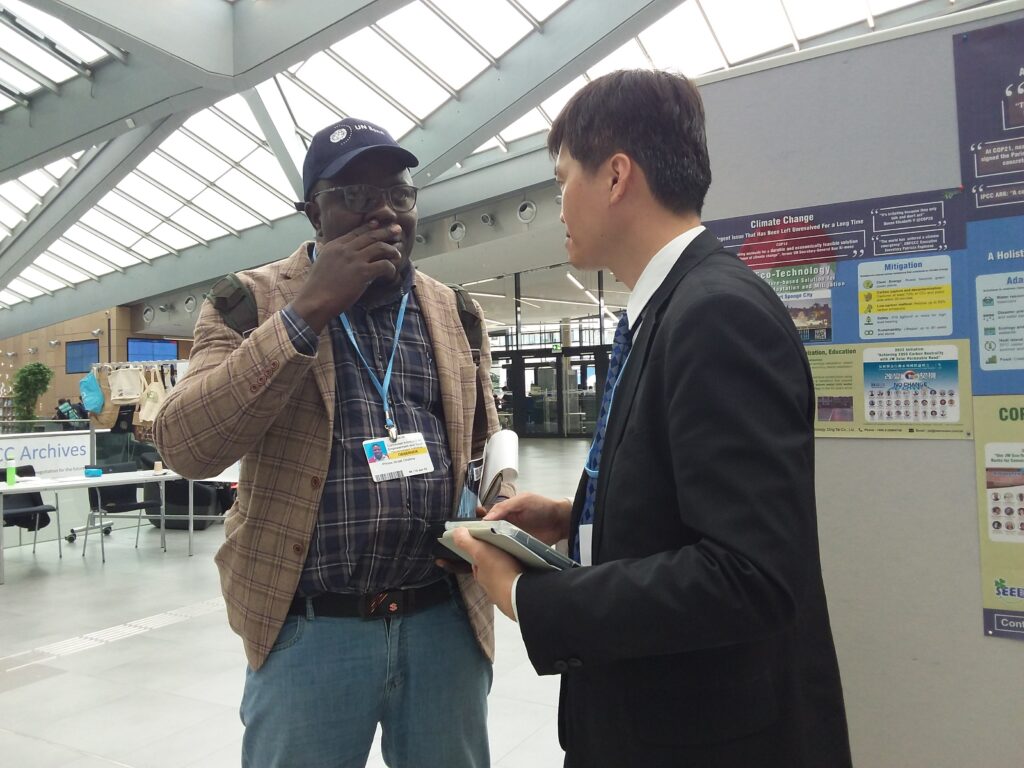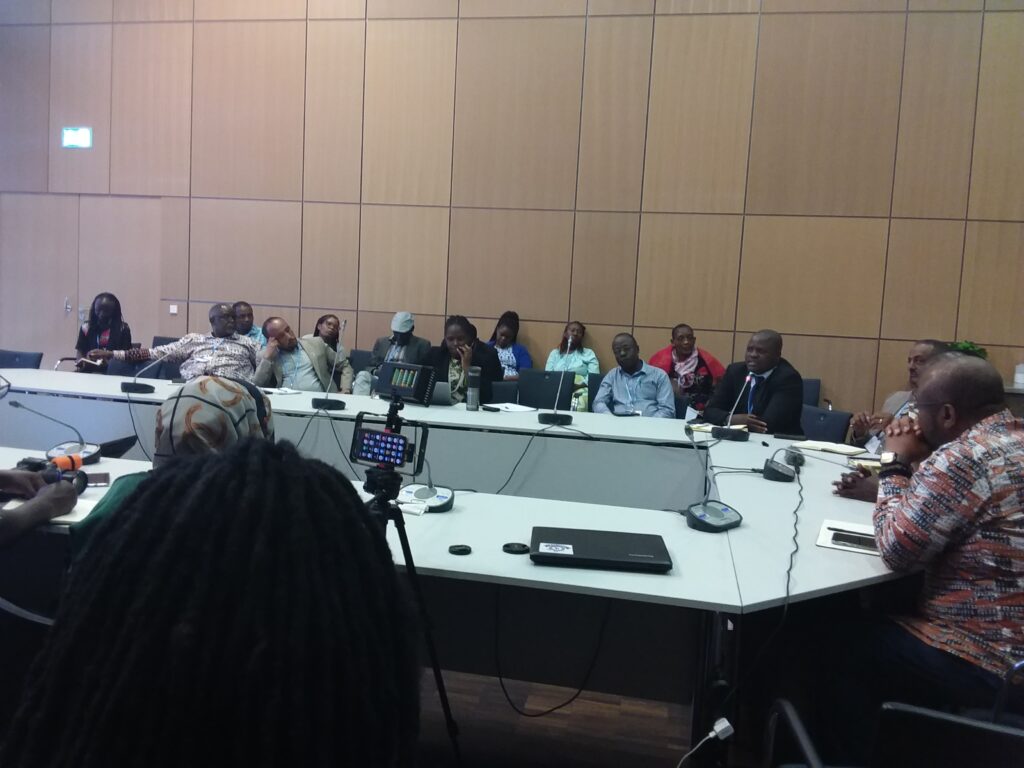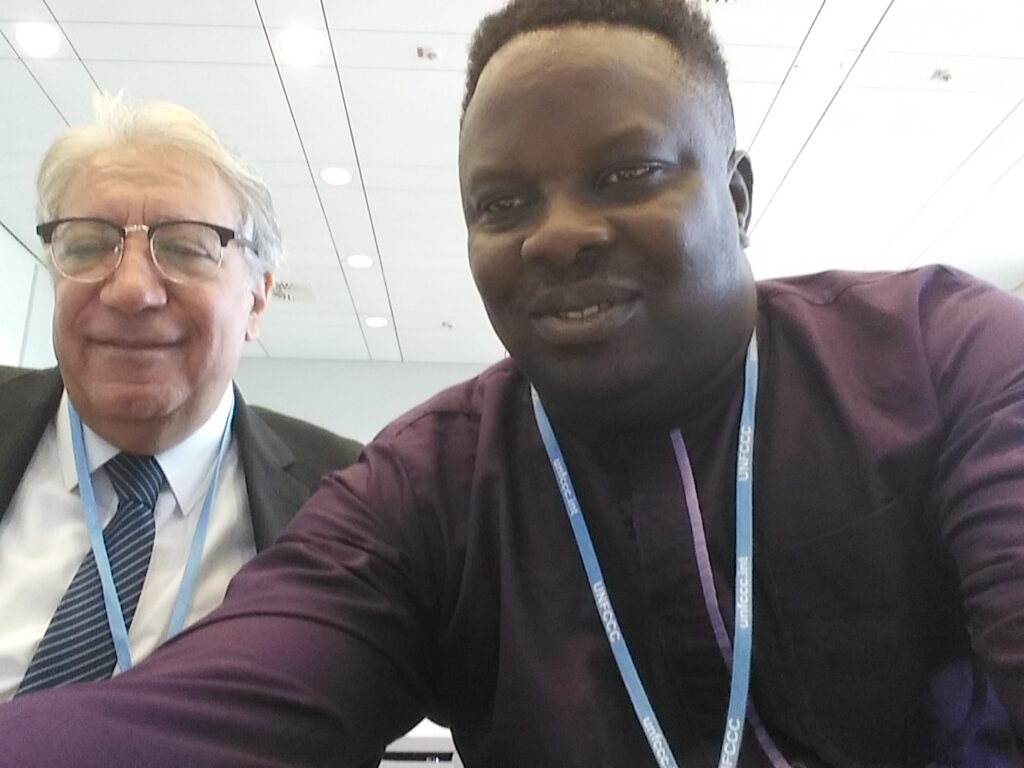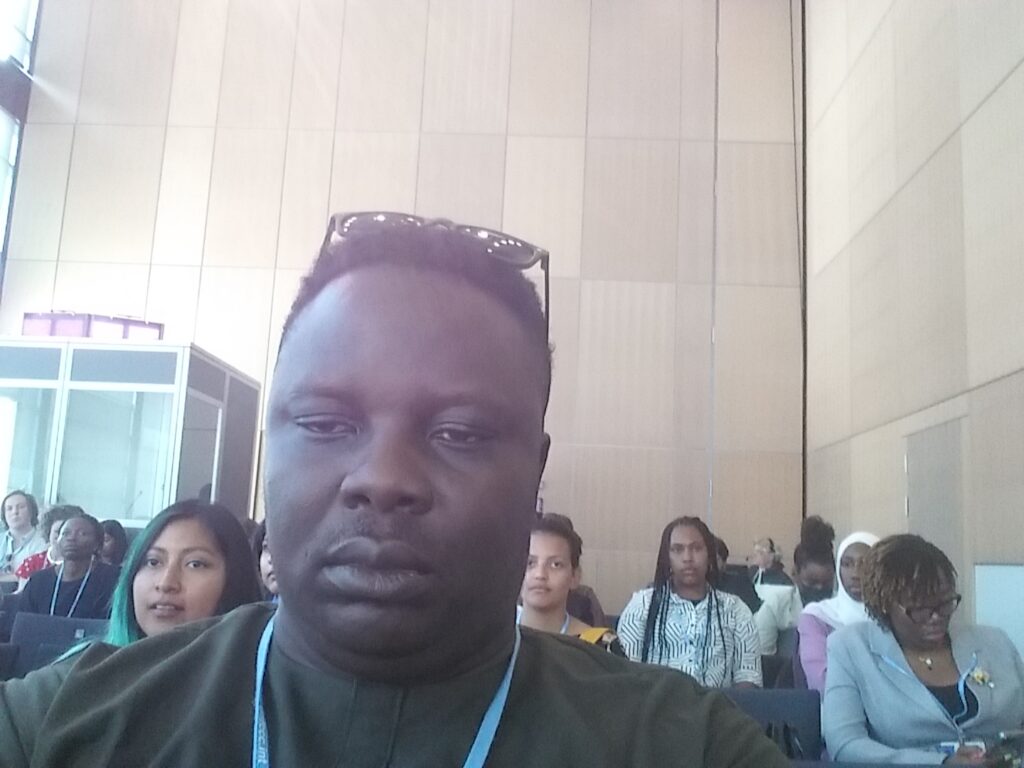SB58 Bonn Able to Deliver the Ambitious Agenda to Tackle Climate Crisis Ahead of COP28 in UAE. Report from Prince Israel Orekha (Connected Advocacy) Engagement at United Nation Climate Change Conference, Bonn Germany 2023.https://unfccc-events.azureedge.net/SB58_93067/agenda

Introduction
The UN Climate Change Conference provided a vital forum for international discussion and climate change action. This report gives a thorough description of our participation in the conference, highlighting key agenda adopted, important lessons learned, difficulties encountered, and recommendations.
Overview of participation: Connected Advocacy (NGO) admitted as observers by the Conference of the Parties of the fifty-eighth sessions of the United Nation Framework Convention on Climate Change Subsidiary Body for Scientific and Technological Advice and the Subsidiary Body for Implementation (SB 58).
The session which was held from 5 to 15 June 2023 at the World Conference Center Bonn (WCCB), Platz der Vereinten Nationen 2, 53113 Bonn, Germany.

Prince Israel Orekha, Our Director who represented us at the above-mentioned Conference, he brought local community participation index on the impact of climate change in Nigeria, sharing his perspective from the Civil Society and indigenous impacted communities from the Niger Delta, and also provided the needed recommendation to some of the session participated and actions which took place during the conference.
Below are some of the activities participated
- Participated in conversations and negotiations with the youth constituency, indigenous communities, Africa group of negotiators
- Represented young people’s and local communities interests throughout crucial meetings, as Connected Advocacy supported the Global Youth Coalition with our platform with the UNFCCC to organize a world press conference to share key issues that affect young people and the need to upscale funding for youth project, climate education and the need to increase youth involvement in policy formulation and implementation from local , national, regional and global because the fight against climate change require a collective action. link https://unfccc-events.azureedge.net/SB58_93067/agenda
- Climate action march to demand loss and damage financing and adaptation in the agenda for strong climate change measures for impacted communities and vulnerable groups especially in the global south.
- We part of the bilateral engagement with the Nigeria delegation which led by the DG Nigeria Climate Change Council on the need to improve more collaboration and participation in mitigating climate crisis which Nigeria is really facing the brunt of the impact from the north to south.

Followed SB 58 Joint Agenda Adopted:
1.Nairobi work program on impacts, vulnerability and adaptation to climate change. 2.Review of the progress, effectiveness and performance of the Adaptation Committee. *
3.Glasgow–Sharm el-Sheikh work program on the global goal on adaptation referred to in decision 7/CMA.3. *
6.Matters relating to the Santiago network under the Warsaw International Mechanism for Loss and Damage associated with Climate Change Impacts. *
7.Matters relating to the global stock-take under the Paris Agreement. *
8.Work program on just transition pathways referred to in the relevant paragraphs of decision 1/CMA.4. *
9.Sharm el-Sheikh joint work on implementation of climate action on agriculture and food security. *
10.Matters relating to the forum on the impact of the implementation of response measures serving the Convention, the Kyoto Protocol and the Paris Agreement. *
Lessons
During our participation at the SB58 Conference, the young people, and indigenous communities where given opportunity to obtained insightful knowledge and participate in key events. Some important lessons include:
- Improved knowledge of the severity and urgency of climate change consequences.
- Knowledge of international frameworks for climate policy, such as the Paris Agreement.
- Exposure to cutting-edge methods and strategies for reducing climate change and adapting to it.
- Information on globally effective youth-led initiatives.
- Improved advocacy and communication abilities as a result of contact with many stakeholders.
- The venue was well crafted to connect the office and the venue with translations devices to allow for inclusive participation.

Observations/ Challenges
Throughout the conference, some observations and challenges, including:
- Restricted access to some high-level meetings and private events.
- Attending all intended events can be difficult due to time restrictions and conflicting sessions.
- Financial limitations, such as the cost of lodging, transportation, and meals.
- Nigerian negotiators were absent in most of the negotiation’s meeting observed
Recommendations
The following suggestions and recommendation:
- Up-scaling mitigative actions for sub-national, regional climate crisis interventions for impacted communities.
- Build local resilience capacity for adaptation and provide resource for on the ground communities participation in enhancing local inclusive participation in the fight against climate change.
- Global North should be failed in the Justification of funding for developing countries like Africa who emits less than 4% Co2, but suffer more of the impact of climate crisis.
- Improve early warning system for community protection mechanism and resettlement plans for victims of climate disasters.
- Investment in just energy transition technology for developing countries, to help them comprehend knowledge gaps and technicalities involved in the production, management for enhanced indigenous knowledge on renewable energy production and access.
- Investment in green jobs for youth and improved locally led agriculture to tackle for insecurity and unemployment
- Polluters and investors should be held accountable for environmental degradation and remediation before divestment, this Schedules should be carefully planned to avoid conflicts of interest, exclusions and allow for local community participation.
- Special task force should be established to visit impacted community for on-the-spot access to provide equal possibilities opportunities for impacted communities participation e.g., Niger Delta communities in Nigeria and Senegal, Uganda mention but a few.
Conclusion
To ensure a sustainable and resilient future, it is crucial to keep 1.5`c promise alive on the agenda and sure prompt climate action to mitigate the climate emergency, that the world is currently faced with. The need for joint climate action, improved people centered policy, technology transfer for emission reduction, improve synergy with the Global North and the Global South, funding for loss and damage, adaptation support for indigenous knowledge and innovation for conservation for our ecosystem, and inclusive community participation in the fight against climate, together we can.